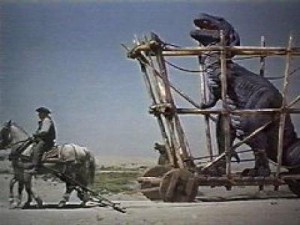I was happy to read that JA Konrath’s novella, SERIAL, has been the #1-Kindle Bestseller for the past nine days. (See his post yesterday).
Many of us have been speculating here about the potential impact of the Kindle on the publishing biz — now Konrath has leaped ahead and run his own home-grown publishing experiment over at Amazon. SERIAL (written under the name Jack Kilborn, penned with co-author Jack Crouch), is a free download. IMHO, the decision to make the download free was a stroke of marketing genius. The download brings with it branding and name recognition. And it’s a neat way to bump yourself ahead of the bestselling mega-authors, too.
Konrath announced the results of another Kindle experiment on his blog yesterday. Evidently in the month of May he made some of his smaller writings available for sale on Kindle. These were works he’d previously allowed readers to download for free from his web site. By selling those same works through Kindle, evidently he netted more than a thousand dollars in one month.
I was particularly interested to read about Konrath’s Kindle experiments in the wake of the recent news that scribd is now letting authors sell ebooks from the scribd site at an 80/20% revenue split. In a recent blog post, I mentioned that an established author (Kemble Scott) decided publish his latest book on scribd instead of going the traditional print publishing route. I just checked back over at scribd, and saw that Scott’s book, THE SOWER, has had 1933 “reads” at a list price of $2.00 each. And it’s only been posted a short time.
The way my fellow author friends are testing the ebook waters reminds me of that scene from Jurassic Park, where the guide tells the visitors that the dinos are testing the fences for weak links.
“They remember…” he says.
A few more good pushes, and some writers might actually figure out a way to do real business in the Kindle/scribd universe. It hasn’t happened yet, but that day might be coming.
I know that in terms of relative scale in today’s publishing landscape, most writers are more like scurrying mammals than T-Rex’s. But hey, we’ve got time and evolution on our side. Give us a few years, and the whole Terra unfirma could change completely.
But that’s just what I think.
What about you?
~~~~~~~~~~~~~~~~~~~~
Coming up on our Kill Zone Guest Sundays, watch for blogs from Sandra Brown, Steve Berry, Robert Liparulo, Paul Kemprecos, Linda Fairstein, Julie Kramer, Grant Blackwood, and more.


Perversely, I suspect that we’re hearing a lot about this right now because of the “novelty” factor, but once Kindle et al becomes more widespread, there’s going to be so many $1.59 self-published books on the site–many of which will suck like an Electrolux–that Kindle readers will get a little leery of the whole experiment. I’ll really be curious to see if Joe’s experiment has legs, if that $1200 the first month doesn’t drop to $900 in the second, $500 in the third, etc. Still, I wouldn’t sneeze at that kind of money, but Joe also has a considerable following, so I don’t know if he’s quite as useful a model for this as someone totally unknown.
For some of those savvy in the file sharing underworld, it would be an interesting experiment to see how easy it would be to get pirated copies of The Sower or Serial.
I assume it will be a matter of time before somebody “Hacks” Kindle and… well with no propriitary format, Scribd is ripe for piracy. I guess it doesn’t matter for Joe Knorath at this point since the download is free and the point it to gain recognition.
While I hope that eBooks might be more secure somehow, it would be naive to believe that it can’t happen.
I agree that folks will get leery if they don’t have a way to weed out the lousy books — which makes me think that the reader/reviewer ratings system will have to get more robust and informed than it is currently at Amazon. (And a ratings system needs to get established at scribd). I also think that getting feedback stats about the actual number of sales is critical for this to work: readers aren’t going to plunk down money, even $1.59, twice for the same author, if he or she can’t write. So if the author has a track record of repeat sales of 1.59 (or whatever the price), plus favorable reader and editorial reviews, I think the reader could safely assume that the author can write. And of course, the reader should be able to preview a section to read, as they do now online. That’s how I currently usually determine whether I want to buy a book by an unknown author, even at a bookstore. I browse a couple of pages.
According to an article in the NYT on Sunday, “. . . e-books represent 1 to 3 percent of total book sales. But they make up the fastest growing part of the industry, and publishers, authors and booksellers have no idea just how big they will become and how they might affect profits and reading habits in the future.”
There may be some novelty to it like Mark suggested, but I can remember when there were folks who said nothing would ever replace the printed newspaper, and the Internet was a passing fancy. Oh, and what’s good fro GM is good for America. I think that times are changing and ebooks are here to stay. If we’re smart, we’ll find a way to make electronic publication a serious segment of our marketing plans.
Good points, Joe! I remember the 70’s, when Japan accounted for small-but-growing sectors of the US car and camera markets. And just look at GM and Kodak now. As writers, it’s in our interest to stay on top of all these technology changes, to make sure that we profit and keep as much control as possible. Otherwise, we’ll be faced with an E-book Empire down the road, which will dictate terms to the writer-mammals (grin).
Here’ a link to that NYT article, btw: http://tinyurl.com/kq67rm
(And speaking of Empires, the article mentions that Google is finally getting into e-books big-time, now.)
Many writers are dropping their ebooks onto Kindle or other sites prior to publication, or even in lieu of. One thing to watch for if you are a new writer and want to try for building an audience via those channels is the rights.
If the book is something you plan on publishing via a big house you may well lose that sale by putting the ebook on a site such as Kindle or Scribd as that takes first rights. Since most houses now put their stuff on those sites you’d be competing against your potential paycheck. If on the other hand the book is something you don’t intend to sell, at least not for a first rights sale, then it doesn’t matter.
Just be careful not to lose the opportunity for a sale in the process of trying to get a sale. Or, just wait and put the ebook online through your publisher when that time comes.
Those are good arguments for putting the “smaller stuff” on Kindle and scribd for now, Basil – the works we don’t plan to market to publishers in the future, and therefore don’t risk losing sales.